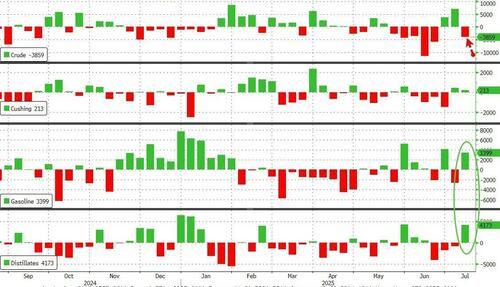“Karne” customs duties on Chinese electrical cars
High European Union duties on Chinese electrical cars can negatively affect the long-term improvement of the European automotive manufacture and will not benefit the EU economy, warns the European Transport and Environment Federation in its latest analysis.
Last October, the European Commission launched an investigation to verify that the competitive prices of Chinese cars are due to government subsidies, partially covering the cost of producing Chinese electrical cars.
The EU “investigation” has so far shown that Chinese producers receive support from Chinese (national or/and local) authorities, e.g. low-interest loans, collateral for government loans, preferential export insurance, reductions and taxation exemptions, etc.
On Wednesday, June 12th, the European Commission announced that “penal” rates would be added to the current Chinese import work of 10%. These duties will be charged as of 4 July this year, and the punishment rates have been calculated separately for each of the Chinese producers. Summaristic duties to be imposed on Chinese imports of cars will thus rise
- 48.1% for SAIC (MG Marks, Maxus),
- 30% for Geely ( Volvo brands, Polestar, Smart, Zeekr) and
- 28.4% for BYD.
The European Commission has not disclosed what duties it intends to impose on another producers (e.g. Nio or Xpeng). She simply informed that the full duties for the another producers who cooperated with the EC in the “investigation” would be 31%. On the another hand, a full of 48.1% will be imposed on the cars of producers who did not cooperate with the EC (for example the SAIC, which has a company with Volkswagen).

According to statistic from the European Transport and Environment Federation, around 20 percent of electrical cars sold in the EU in 2023 were manufactured in China. In this number, more than half were Western brand cars, specified as Tesla, Dacia, VW or BMW, manufactured in Chinese factories of Western companies. Experts from the Federation believe that, as a consequence of the imposition of duties on Chinese cars, European consumers will endure from higher prices. Blocking the anticipation of bringing European brands produced in China to Europe will besides enable consumers to choose only from more costly cars than those manufactured in China and at the same time little technologically advanced.
The solution to the situation of European producers is, according to the experts of the Federation, healthy competition in the production of high-quality vehicles offered at an affordable price.
The authors of the paper call on the Union to focus on cooperation with China (instead of imposing duties), suggesting that specified cooperation will have effects in the form of faster improvement of the electrical vehicle manufacture in Europe.
The European Commission's action on spice adds that it is the Union that sells much more cars to China, especially the most costly brands. There are rumors present that China will start blocking this export in consequence to the EC. Barriers to large volume combustion engines entered the first fire. They happen to be engines for the highest models of brands specified as Porsche, Audi, Mercedes and BMW.
Source: transportenvironment.org;
Department of Future manufacture at the Ministry of manufacture and Information Technology
Ministry of manufacture and Information Technology (chin. 工业和信息化部) changes its structure. The Department of fresh and advanced Technology created the Department of Future Industry. This is the first case in the past of the structure of the central administration of China erstwhile a peculiar body is created to deal with this kind of issue. In the same Department of fresh and advanced Technologies is created simultaneously
- Department of Comprehensive Industrial Development,
- Project Coordination Division,
- Department of Innovative Industry,
- Department of Key Technologies 1 and
- Department of Key Technology 2.
These departments have the work to formulate plans and policies for the improvement of advanced technologies and industrialisation in related fields and to advance investigation and improvement of key key technologies.
The Ministry's decision sets out six priorities:
- production,
- Information
- new materials,
- energy,
- space and
- the wellness industry,
and stressed the request to make 10 innovative products specified as humanoid robots.
Source:
- sohu.com;
- miit.gov.cn;
BYD and DM-and 5th generation
In the last days of May, the company BYD corp Ltd. (chin. 比亚迪股份有限公司) presented its DM- and 5th generation technology and presented 2 hybrid cars utilizing this technology:
- Qin L DM-i
- Seal 06 DM-i.

The key information is that BYD has reached 3 planet records:
- the highest thermal efficiency of the engine (46.06%),
- lowest fuel consumption (2.9 l/100 km) and
- the largest scope of 2100 km without the request for charging or refuelling.
The 5th generation BYD strategy is the improvement of the 4th generation DM technology. DM is short for Dual Mode, and this strategy debuted in the BYD F3DM model in 2008. It is based on a 1.5-litre plug-in hybrid petrol engine. It provides a maximum power of 74 kW and a torque of 126 Nm. Thanks to technological improvements, the engine now has a thermal efficiency of 46.06%, which according to BYD means it is the most efficient engine in the world.
Depending on the version of the car Qin L DM-i and Seal 06 DM-i cost from 99 800 RMB to 139 800 RMB (from approx. 55 1000 to approx. 77 1000 PLN).
Source:
- m.pcauto.com.cn;
- stock.10jqka.com.cn;
- xinhuanet.com;

Author: 梁安基 Andrzej Z. Liang, 上海 Shanghai, 中国 China
Email: [email protected]
Editorial: Leszek B.
Email: [email protected]
© www.chiny24.com














![Święto policji także w Sielpi. Mundurowi zaprosili na piknik [wideo, zdjęcia]](https://tkn24.pl/wp-content/uploads/2025/07/Swieto-policji-takze-w-Sielpi.-Mundurowi-zaprosili-na-piknik-04.jpg)

